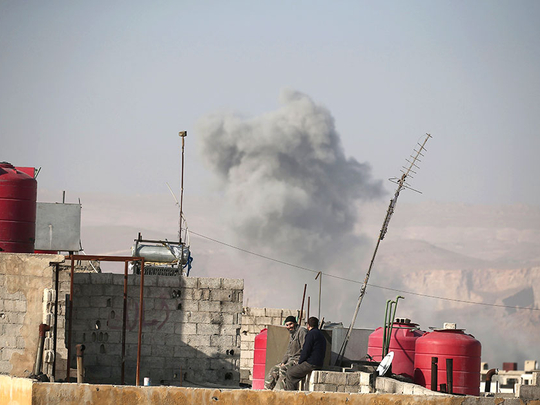
As the regime continues with its brutal siege and daily bombardment of Syria’s Eastern Ghouta region, reports have emerged of yet another chlorine attack. The BBC said people in Eastern Ghouta had reported the smell of gas after a missile strike. Later, health workers said six people were treated for breathing problems.
Some 400,000 people have suffered in the enclave near the capital without adequate food and medicine since 2013. The situation has deteriorated to the extent that there have been several deaths as a result of malnutrition.
There have also been many other reports of chlorine gas attacks since the civil war broke out.
Yousuf Ebrahim, a teacher who now lives underground in the rebel-held town of Harasta, just outside Eastern Ghouta, described the situation there to the BBC, saying, “Today is not so difficult as it was yesterday because there are no warplanes or any raids till now, just heavy artillery bombardments ... like surface-to-surface rockets, which are targeting the buildings and the population in Harasta. The inhabitants of the city are all underground, living in the basement or the cellars because of such heavy bombardment. There is no means of life such as markets or good services.”
An adviser to a coalition of medical charities told the BBC the attacks had been the most intense for a year.
On January 10, United Nations high commissioner for human rights Zeid Ra’ad Al Hussain said an upsurge in attacks had killed at least 85 civilians in Eastern Ghouta since December 31.
“In Eastern Ghouta, where a crippling siege has caused a humanitarian catastrophe, residential areas are being hit day and night by strikes from the ground and from the air, forcing civilians to hide in basements,” Al Hussain said in a statement.












